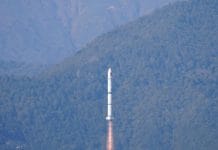Malaysia approved investments totalling RM264.6 billion last year, some 14.5% lower than in 2021, International Trade and Industry Minister Tengku Datuk Seri Zafrul Tengku Abdul Aziz announced on March 8.
According to Tengku Zafrul, the 2022 numbers were lower mainly due to two chunky one-off investments from Intel Corp and Chinese solar energy firm Risen Energy Co Ltd committed in 2021.
The RM264.6 billion approved investments for 2022 translated to 4,454 projects, with 140,370 job opportunities to be created. China remains the most significant foreign investment contributor at 34%, he told a media conference to announce Malaysia’s 2022 investment performance in Kuala Lumpur.
“China is the largest and nearly double that of the US. If you look at the trend, the top trading partners for Malaysia and (source) for FDIs are the US and China, and we’ve seen that consistently over the years,” he said.
The services sector is the major contributor with RM154 billion, followed by an RM84.3 billion boost in the manufacturing sector and RM26.3 billion in the primary sector.
Foreign direct investment (FDI) remained the major contributor to the total approved investments at 61.7% or RM163.3 billion, while domestic direct investment (DDI) contributed 38.3% or RM101.3 billion.
China dominated foreign investments totalling RM55.4 billion or 33.9%, followed by the US (17.9%), the Netherlands (12.5%), Singapore (8.3%) and Japan (7%).
Providing a breakdown, Tengku Zafrul said five states that have recorded significant approved investments include Johor (RM70.6 billion), Selangor (RM60.1 billion), Sarawak (RM28.2 billion), Federal Territory of Kuala Lumpur (RM25 billion) and Penang (RM16.3 billion).
Tengku Zafrul said the government is cautiously optimistic about investment performance for 2023 given the global economic slowdown, which impacts almost all emerging economies.
“Since the global economy is expected to be positive but slower than the previous year, the investment will also be affected as it depends on demand.
“However, investment is different from trade, where investment will be made based on long-term planning (so) what’s important is to go back to the fundamentals of the country in terms of the ecosystem that we have, the talent pool and the structure we have which will be the key factors,” he said.
Mida said it has several promising projects in the works, with potential investments totalling RM14.6 billion committed year-to-date, indicating great potential for the Malaysian economy.
It said the manufacturing sector has 31 projects with a potential investment of RM10.6 billion, while the services sector has 218 projects with a potential investment of RM4 billion.
It added that the recent commitment by Tesla and Amazon Web Service (AWS) to invest in Malaysia is a “testament to Malaysia’s political stability and institutional strengths”.









